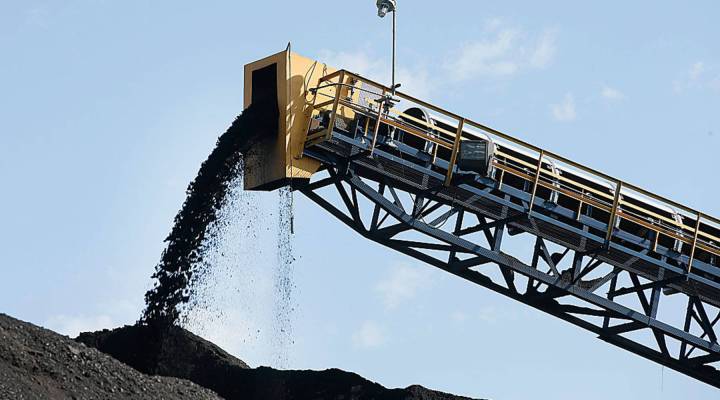
Who loses in coal bankruptcies? The coal miners.

The coal industry and its workers are an issue on the campaign trail. Several coal mining companies have filed for bankruptcy protection, and next week a congressional committee will take up the issue.
Some 10,000 retired coal miners demonstrated at the Capitol in Washington this month, asking Congress to pick up a tab their companies left behind through the process of bankruptcy. As of January, Peabody Energy, the largest coal company in the world, will stop paying into a health care fund for retirees of Patriot Coal, a now-liquidated company that Peabody spun off in 2007. At that time, the miners’ union says, the Patriot fund will be depleted and no longer able to pay benefits.
“The bankruptcy law lets them get away with everything that they owe their people that they’ve promised them for years,” said Wayne Thompson, a retired Peabody miner from western Kentucky, speaking at the rally. “These people that you see here built Peabody coal company.”
Peabody is just one of several coal mining companies in financial distress, following a market crash. Five years ago, global coal prices peaked. Many mining companies at the time made billion dollar acquisitions, largely with borrowed money.
Then came the crash. World demand fell, coal prices plummeted and corporate revenues fell.
“When the coal market went south, the coal prices went down, these companies couldn’t service their debt,” said Patrick McGinley, a law professor at West Virginia University. “So the companies that loaned their money, investment bankers, hedge funds, they’re first in line.”
In his view, top coal executives took huge financial risks and didn’t learn their history. Thousands of companies have gone bankrupt in this volatile, boom-bust commodity sector.
“They basically sunk their companies,” McGinley said. “And the collateral damage was miners and miners’ widows, pension fund and health care benefits.”
The nation’s bankruptcy law and courts have allowed this to happen. Normally, when a company is healthy and intact, it enters into a collective bargaining agreement with workers and takes on certain obligations.
“It’s very difficult for a company to step away from its union outside of bankruptcy,” Columbia law professor Edward Morrison said. “But once it files, it’s a very different situation.”
In bankruptcy, every party that wants a crack at the remaining assets fights for a space in line. Legally, Morrison said, labor liabilities count as “junior lenders” and stand further back. Environmental cleanup liabilities fall in the same category. Standing in front: the banks.
Banks’ justification for this is they lent money on the assumption they’d stand first in line; otherwise they would not have put up the money. There has been a debate over changing this, but pushing banks further back in line could endanger their health and that of the broader economy.
“It would mean it’s harder to start a business in this country, it’s harder to finance a business in this country,” Morrison said. “You have to weigh those things, and it’s a very difficult question about what’s the optimal balance.”
CORRECTION: An earlier version of this story misstated Peabody Energy’s impending action on retiree benefits. As of January, Peabody will stop paying into a health care fund for retirees of Patriot Coal, a now-liquidated company that Peabody spun off in 2007. The article has been corrected.
There’s a lot happening in the world. Through it all, Marketplace is here for you.
You rely on Marketplace to break down the world’s events and tell you how it affects you in a fact-based, approachable way. We rely on your financial support to keep making that possible.
Your donation today powers the independent journalism that you rely on. For just $5/month, you can help sustain Marketplace so we can keep reporting on the things that matter to you.

















